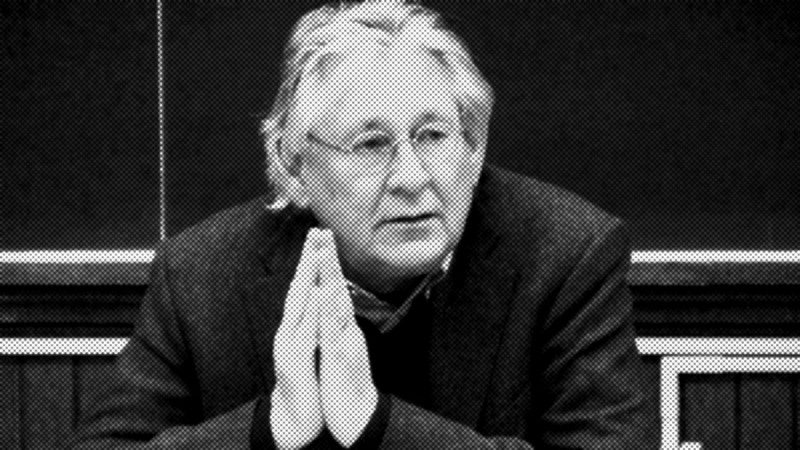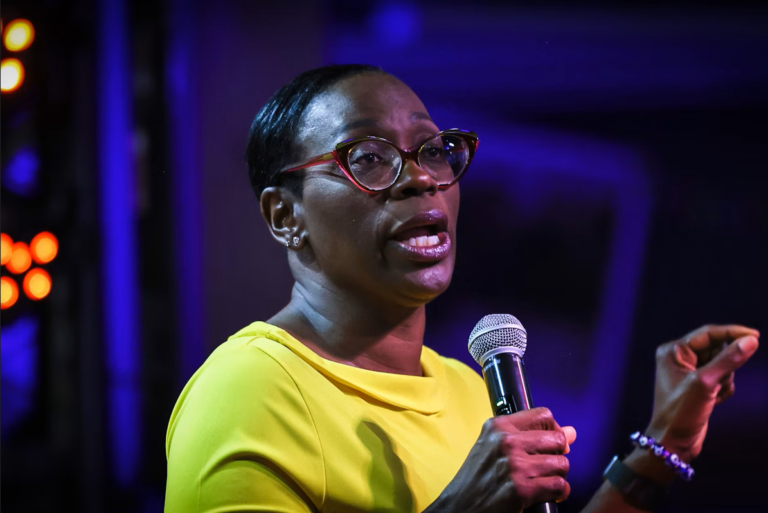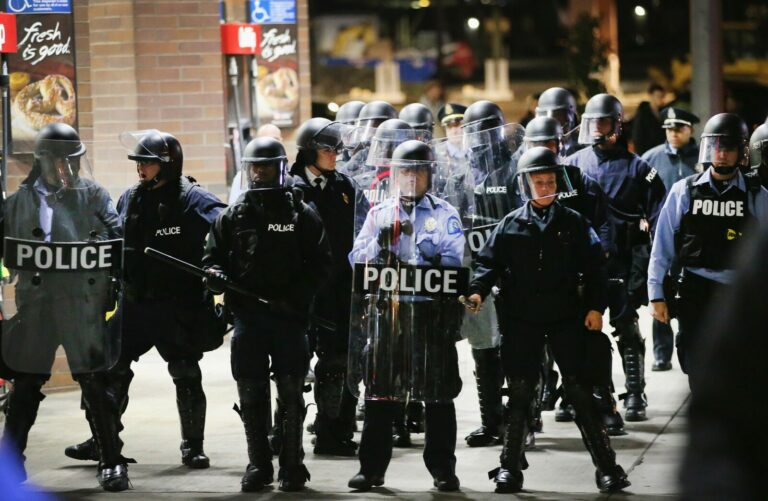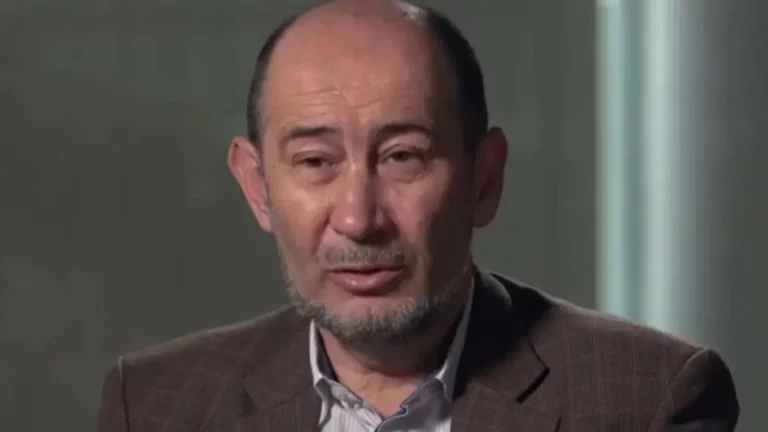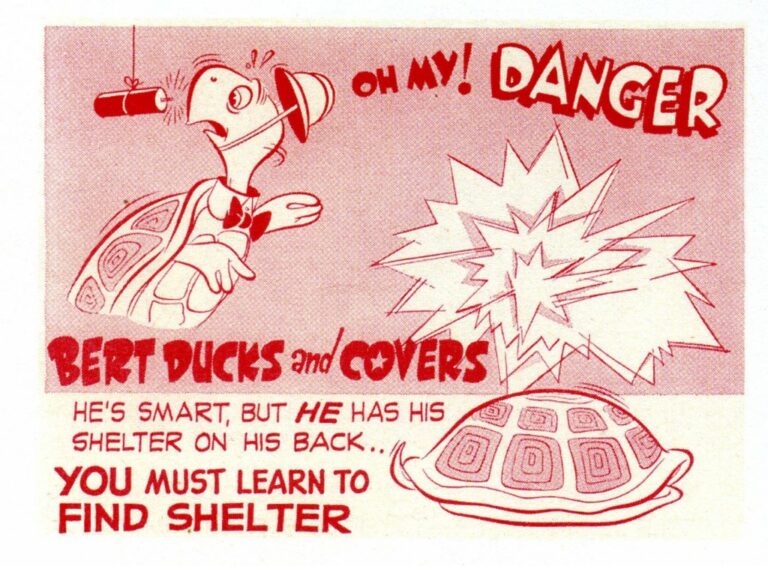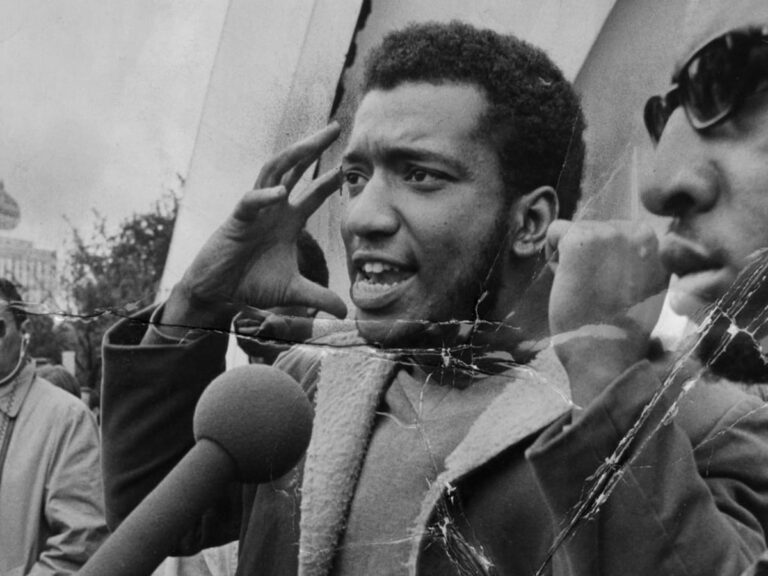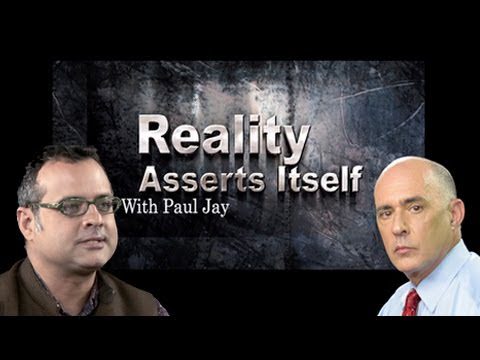The Radical Ferment of Winnipeg’s Jewish Socialist Politics – Leo Panitch on RAI Pt 1/4
On Reality Asserts Itself, Prof. Leo Panitch talks about the political culture of his family, shaped in Winnipeg’s radical Jewish community before and after World War Two; Labor Zionists, Social Democrats, and Communists debated and organized within the Jewish working-class movement – with host Paul Jay. This is an episode of Reality Asserts Itself, produced March 5, 2018.
STORY TRANSCRIPT
PAUL JAY: Welcome to The Real News Network, and welcome to Reality Asserts Itself. I’m Paul Jay. Leo Panitch is professor emeritus and senior scholar at York University in Toronto. He’s the co-editor of the annual Socialist Register, the 2018 volume of which is on rethinking democracy. Leo’s co-author of the book, In and Out of Crisis: The Financial Meltdown and Left Alternatives, and most recently, co-author of the UK Deutscher Book prize-winner, The Making of Global Capitalism: The Political Economy Of American Empire. The work of Leo Panitch has been featured widely from the Guardian and the Globe and Mail, to Red Pepper and The Real News Network. His influence spans far across the academic disciplines of history, sociology, political science, and political economy from Canada to around the globe.
As Bryan Palmer recently put it, “Over the course of the 1970’s to present, Panitch has emerged arguably as Canada’s most widely recognized and internationally acclaimed public intellectual of the Socialist Left. No other Canadian is as likely to be read, heralded, and even occasionally repudiated in Athens and Sao Paolo, in Alexandria and Sydney, in Johannesburg and Oslo, as Leo Panitch.” And Leo Panitch now joins me in the studio. Thanks very much for joining.
LEO PANITCH: Glad to be here, Paul.
PAUL JAY: So, as most of our viewers know, we usually start Reality Asserts Itself with the personal backstory of our guests and then we get more into some of the issues and what they think. But we’re starting with how their political views of the world were formed. So Leo, talk a bit about growing up in Winnipeg. You grew up in a very political section of Winnipeg, which, like my father in Montreal, very left wing. Communists, Social Democrats, socialists, all mixed up with various forms of Jewish politics and Yiddish. Most people spoke Yiddish, not Hebrew. Talk about growing up in such a family and the role your father played, who himself was an activist at the time.
LEO PANITCH: Yeah, that part of Winnipeg is famous for having been a hotbed of radicalism, and I was part of that even though I was born in 1945, when it wasn’t at its height already. It was at its height from the Winnipeg General Strike on, from 1919 right through the 20’s and 30’s, but the institutions that were set down in that period continued through my youth. And you know, Winnipeg elected Joe Zuken, who was a alderman in the city, became a very famous figure. He was a Communist who was elected right through the Cold War and into the 1970’s. He was a hero in the city as a Communist politician. My own family were Social Democrats. My father joined the CCF in 1934, the year after it was founded. That’s the forerunner of the New Democratic Party in Canada, Social Democratic Party, then a Labor Farm Party. He was an activist in his trade union. He was a furrier, and at one point was president of the union local.
Our childhood was full of socialist references. I had an aunt who was a Communist, my mother’s sister. They came to Canada as orphans right after World War I, and even in the 50’s they were still arguing over the Hitler-Stalin Pact, with my dad saying “You see what the Communists do?” And my Aunt Rose saying “Well what else could they do, they weren’t ready for the war yet.”
So that was part of the milieu. I went to a Yiddish school, a school in which we didn’t learn Hebrew, and I don’t speak Hebrew, but in which we learned Yiddish. You read Yiddish literature, poetry. It was very secular. Non-religious, as my family was. We didn’t speak Yiddish at home, but at the school we did, and that school was seen as part of the socialist culture, and was part of the socialist culture. So it was a remarkable place. You could run Mickey Mouse in North Winnipeg for the CCF and then the NDP, and he’d get elected.
PAUL JAY: Now, I know you gave a talk in Winnipeg some time ago. Your search to understand your father and that period, helping to understand your own roots led you to try to dig into the politics of your father and the more earlier period. And for your father and many of the Jews, I guess other than Jews that directly joined the either Communist party, the idea of their Jewish identity, which in those days really, to be more precise, would be more an Ashkenazi, East European Yiddish-speaking identity, not Jewishness in the abstract, as some people like to promote now. Some people being Israel, or Zionists, anyway. But they did consider themselves Zionists. They didn’t separate the socialism from the Zionism. And how did that affect the politics of your father and the period?
LEO PANITCH: Well, some did, and some didn’t. What happened in Eastern Europe, just at about the same time that the great workers’ movements merged, and often those great workers’ movements, especially in Eastern Europe, were heavily Jewish. The proletariat in the cities of the Ukraine and sometimes in Poland were Jewish proletariats. The peasantry was Ukrainian or Polish, and Jews didn’t think of themselves as Ukraines or Poles. I mean, those countries were made up of very different ethnic groups and [crosstalk 00:06:16].
PAUL JAY: You’re talking early 20th century.
LEO PANITCH: This would be the early 20th century. Really, in some senses, right up into the 30’s. What happened in that part of the world at the time that the socialist movements were arising was that Jews broke away from a rabbi dominated culture and established a secular literature in Yiddish, which was heavily tinted toward the labor movement, towards political radicalism, et cetera. At the same time, they were engaged in political struggles, sometimes as intellectuals, more often as workers. A wing of what became the Communist party, the Bund in Russia, was crucial to the splits between the Mensheviks and Bolsheviks. This was a Jewish wing of the Russian Social Democratic Party. The split was really over whether the Bund would be federated to that party as a group, or whether individuals had to join that party as individual Jews. That’s what the original split over the Mensheviks and the Bolsheviks was about.
There was a difference that gradually developed, as some Jews oriented themselves to “We need to get out of here,” especially after the great pogrom in Kishenev near Odessa in 1905. A split began to develop between those who said “No, we have to make a revolution here.”
PAUL JAY: Just back up just a sec for people who don’t get what a pogrom in 1904 and 1905 is, which is many of our younger audience, and others who have never heard of such a thing. Just a quick, one minute.
LEO PANITCH: Well, I’m sure they’ve heard the word pogrom.
PAUL JAY: I’m sure they have not.
LEO PANITCH: Really?
PAUL JAY: Yeah.
LEO PANITCH: Well, it’s the kind of thing that-
PAUL JAY: We’ve talked about the teaching of history in schools, here, so.
LEO PANITCH: Well, Jews were often the subject of hoods, anti-Semites going into an area of the city and-
PAUL JAY: In Ukraine.
LEO PANITCH: Well, all over eastern Europe.
PAUL JAY: Not only in eastern Europe.
LEO PANITCH: And you know, beating the hell out of people, raping women, killing people, on antisemitic grounds. The word has become more common for those kinds of activities stretching all the way to Rwanda, or indeed, south side Chicago, when it’s a police riot. So that’s what I was referring to.
PAUL JAY: And in 1904, 1905, you have a big wave of emigration to the United States, to Canada. People escaping these times.
LEO PANITCH: That’s right, and there was one very famous one in the southern Ukraine near Odessa [crosstalk 00:09:08].
PAUL JAY: And a lot of it had to do with seizing Jewish property. They wanted to force people out to seize the property.
LEO PANITCH: Part of it had to do with the property. Yeah, part of it had to do with that. Part of it had to dividing the working class by identifying Jews as the killers of Christ and that kind of appalling antisemitism, in which religious ignorance was often used against people’s own interest. This goes back a very long way.
PAUL JAY: And a bit of the wall on the border debate, in a more current terminology.
LEO PANITCH: Yeah, that’s right, So you know, a certain difference emerged among people who were building a secular culture, who were engaged in politically progressive activity, about whether Jews should escape from that part of the world, emigrate to North America, or, because by that time there had been a “Let’s get back to Palestine” movement. “This is where we came from, we’ll only be able to escape this.” And it was a time, remember, of national liberation struggles. “Well, if we’re going to be liberated as Jews, we’ve got to find someplace to live.” And the difference emerged between some of those people who became known as Zionists, “We need to get back to Zion,” and those who wanted to stay and make a revolution. And even those who stayed remained “We need to get there eventually.”
PAUL JAY: And there’s another split in those who want to get back to Zion. Some who represented kind of more capitalist values and those who think they’re going to create some socialist nirvana.
LEO PANITCH: Most of those who were the original immigrants, most of them, not those who funded them, but those who got there, would have thought of themselves as socialists.
PAUL JAY: We’ll talk a little bit more about that when we get further into your father, because how they jive with the socialist values and the attitude towards Palestinians, but let’s save that and get back to your father and his values. Your father becomes a Labor Zionist.
LEO PANITCH: Well I think a lot of people use Zionism now in a very ahistorical way, and I think wrongly. It was very possible to be a very left wing, and indeed, internationalist Zionist. In the context of the persecution at the time, in the context of Jews being a persecuted minority, to assert we have a right to a nation-state without thinking about who was living there, all those consequences, was not uncommon. My father certainly thought of himself as an internationalist, and I remember him saying to me a number of times, “If the world wasn’t so bloody nationalist, I’d be very happy not have nothing to do with nationalism.” He didn’t think of himself much that way, and of course, coming to North America, his main activity, as was true of most people who even called themselves Zionists at that time, their main activity was in the unions. Their main activity was in a Socialist Party. That was their main activity. That’s not to say that they weren’t in favor of establishing a homeland for the Jews.
PAUL JAY: And even there, there’s another division. I was reading quote from Einstein today, who favored a state, but a binational state, and was very wary of this idea of just a Jewish state, that there should be a binational state of some kind. Apparently, that had some support, because apparently he was nominated at one point to be president of Israel, and he turned it down.
LEO PANITCH: Yes he was. But he was in favor of the establishment of Israel and the awareness of people that that wouldn’t be a state in which Jews and Arabs would coexist wasn’t very high at that time. It was only with what the Palestinians called a nakba that that became so clear. There had been of course, divisions going back through the 20’s and 30’s, but for someone living in North Winnipeg, that was hardly what one saw clearly in terms of what was going on. Of course there would later be a good deal of propaganda that would sweep the plight of the Palestinians under the carpet.
But look, this is nothing new in the history of the establishment of nation-states, if you look at the African nation-states, the ethnic groups that were thrown together as the colonial powers drew the borders. In fact, this is still going on with the Kurds all over the Middle East and North Africa, right? You see it in the Syrian conflict today. So ethnic groups were thrown together, and of course, the Jews in that sense were migrants, for the most part, although there had been Jews who had never left that part of the world, and there’s some who had come after the Spanish expulsion of the Jews in 1492, et cetera, et cetera. So there’d been Jews for a long time there as well.
The consequences, of course, of establishing a nation-state in a multi-ethnic, multi-religious arena is often fraught with conflict, with identities, with irreconcilable ones. So things weren’t at all, in that sense, nearly as clear through the first half of the 20th century as they appear to be now, of course. Moreover, the people who’ve been running Israel for the last 20, 30, 40, 50 years, especially since 1967, have been those who are on the far right of the Zionist movement. Who are the least internationalist, the least socialist, the most oriented to individualism, and to certain degree, of tribalism.
PAUL JAY: So, your father, as a Labor Zionist, is a very different concept than one might understand that today. It’s hard to believe someone would be a socialist and a Zionist in the sense of supporting today’s Israel and the policies of today’s Israel. But in the time your father, we’re talking early 20th century.
LEO PANITCH: Well, there wasn’t an Israel.
PAUL JAY: One, there wasn’t an Israel.
LEO PANITCH: So there weren’t any policies to support in that sense.
PAUL JAY: Well, but there was some practice, but as you said, I don’t know how many people knew. I mean, the expulsions of Palestinians in the 1920’s. I’ve read accounts of Jewish taking over factories and expelling all of the Palestinian workers in the 1920’s. So the contradictions were already fairly sharp, there. I don’t know how much people knew about that here.
LEO PANITCH: I don’t think they knew much, and I don’t think those were as common practices as they appear to be, looking back. But certainly, there was those kinds of things were going on, I’m sure. Yeah.
PAUL JAY: So your father’s … There’s various contradictions in the Jewish community. You have Jews are a part of the Communist party, and not part of straightforward Jewish organizations, and then with those in the Jewish organizations, you have kind of more, Social Democrat, centrist kind of Social Democrats, more kind of left. Where’s your family fit into this, and how does this-
LEO PANITCH: Well as I say, I think this conversation distorts what was the reality of my childhood and the reality of North Winnipeg. I don’t think that the kinds of divisions that you’re identifying around Zionism were top of the mind.
PAUL JAY: Oh no. What I just said wasn’t about Zionism. I’m talking about the kinds of divisions that exist, frankly, in every community of different types of politics within the left.
LEO PANITCH: Yeah, but that’s related to this point. I don’t think they were top of the mind, the ones that were over the question of the state of Israel or not. Not least because that was such a distant prospect. You know, there were divisions in the left, generally.
PAUL JAY: Can I say, what I’m suggesting is not a difference over the state of Israel, but there is a difference on whether your politics is done through the lens or actually, organization of a Jewish organization, so it’s Jewish and such-and-such, or directly through a more secular, like the Communist Party or something that doesn’t have a Jewish hook to it, or some other left organization.
LEO PANITCH: Yeah, you know.
PAUL JAY: Your family grew up within the milieu that mostly, this is done through Jewish culture.
LEO PANITCH: Yeah. Although if you were in the Communist Party in North Winnipeg or Montreal, or in New York, you were surrounded very often by your Jewish neighbors, friends, cousins, relatives, et cetera. So there were certain ethnic communities, that’s one of the reasons the Communist Party was limited in North America, where the Communist Party sank roots. In Canada, very deeply amongst the Finns, but also amongst Ukrainians who came before 1917, or the Russian Revolution, usually. There were elements of German communities in North America who were Communist. So there was always an ethnic tinge, even to the formation and organization of the Communist Party.
PAUL JAY: What’s your father’s attitude towards the Communism and the Communist Party?
LEO PANITCH: Well, you know. It was part of the family, in a sense. He was a left Social Democrat. Would have known people in his union who, often, they were leaders, in fact, and his union was led by Communists. They were people who worked together, but also often disagreed. They less often disagreed about the question of Zionism, I think, than they disagreed about strategies and tactics in relation to union or working class organizing, or in relation to whether one supports the twists and turns of the Stalinist Soviet Union.
So in the period when Stalin adopted the class against class line, 1928 to 1933, four, where the Social Democrats in Germany were called Social Fascists by the Communists, et cetera, a separate trade union was created. And there were divisions amongst working class people. I wasn’t around, but I’m sure my father shared it, over whether those red unions were going to be supportive. There were differences, obviously, over the question of the dictatorship going on in the Soviet Union. I’m sure my father was more likely to believe stories about the show trials than was my Aunt Rose, who was a Communist.
PAUL JAY: Who worked in Garment District in Toronto.
LEO PANITCH: Who was, yeah. My father worked in the sweatshops in the fur industry, the aristocrat of the needle trade, they were known, because such an expensive product to work on. She worked in the textiles in the schmatte business, as it was known. She often sewed gloves, in fact. She did that in Winnipeg, but then during the 1930’s, for a period, she moved to Toronto and worked there. My dad moved to Toronto for two years in the 1930’s because he couldn’t get a job in Winnipeg, having been blackballed after a strike at the Hurtig Fur Company where his head was broken open by a scab wielding a wrench.
So those divisions were much more about either Soviet politics or differences over organizing tactics. Much more bitter, much more important, much more significant than the ones we were talking about before.
PAUL JAY: A thread throughout all of this, Jewish identity, the Yiddish language. It’s a big part of family life, of culture, and it’s part of the politics, in a sense.
LEO PANITCH: It’s part of the politics. I was sent to a secular Jewish school known as the Peretz School. I. L. Peretz was one of the great novelists and poets of that period I was talking about.
PAUL JAY: Who you found out later, was a Marxist himself.
LEO PANITCH: Well, it was certainly oriented to Marxism, definitely, as most of these guys were. I remember I was given, in fact, a copy of Das Kapital in Yiddish by a non-Jewish fellow in Ottawa who used to come hear me lecture occasionally. His mother had been Communist alderman in Toronto, and he gave me this. Published by the Kropotkin Society, no less. Kropotkin was a famous anarchist in New York.
So, sure. I remember someone telling me they came across an anarchist pamphlet produced in Edmonton, Alberta in 1918, in Yiddish. So the whole panoply, but you would’ve found this in the Finnish community. You would’ve found it in the radical Ukrainian community. You would’ve found it in the United States, certainly in the German community, from the 1850’s right through to World War I. This was not unique to, I happened to grow up in that community. No, at the same time, these secular oriented Jews weren’t entirely by any means, inward looking. Although I was sent to a Yiddish school and I used to say poems on the Yiddish radio station. You know, I was 10 years old, because I’ve always had a good radio voice. I was born with it, I guess. My dad must have had it as well. But our lives weren’t entirely oriented inward to the community. As I said, it was not only Communists who were oriented that way. It was also my dad joining the CCF at such an early age.
PAUL JAY: And for American viewers, just-
LEO PANITCH: The CCF, again, is known as the Canadian Commonwealth, or the Cooperative Commonwealth Federation. And it’s, you know, they’re trying to build a socialist commonwealth, where wealth is in common. It was founded in the early 1930’s by radical farmers, radical workers and intellectuals, and it’s the forerunner of Canada’s Social Democratic Party, the New Democratic Party. The NDP, as it’s now known.
So where were we? I was trying to get at the sense in which, even though the Jews were radical, and North Winnipeg was known as where the radical Jews lived, you didn’t have to be a Communist to be oriented primarily to struggles going on, secular struggles going on in Canada. Or for that matter, in North America, or more broadly, internationally.
PAUL JAY: You were born in 1945, so this is just after a horrendous genocide against Jews in Europe. Jewish identity in some ways, I would think, would be even more important in the family, in the sense of what had just happened to so many Jews. You’re four or five years old. McCarthyism hits. What is the milieu in your family and your father’s attitude during this period?
LEO PANITCH: A lot of Jews of my age say that that was all swept under the carpet, and that they never heard of the Holocaust until the 60’s. That this was all buried. That certainly wasn’t the case in North Winnipeg. It wasn’t the case in my milieu. It wasn’t the case in my family. It was certainly, I was conscious of it as I grew up.
PAUL JAY: Were there family members who were killed?
LEO PANITCH: One of the poems I used to say on the Jewish radio as a young boy was the poem on the Warsaw ghetto, which begins with the Angel of Death arriving into the ghetto on the first night of Passover. It’s a very moving and stunning poem, and I was able to say it in Yiddish. We didn’t speak Yiddish at home, but because of the school I went to, where half day we would study Yiddish, half day it would be English curriculum. So yes. I remember every year, there was a Holocaust memorial ceremony that very large numbers of people in the community would attend. I often hear people say they grew up not hearing about it, that it was suppressed. People were afraid to talk about it, et cetera. That wasn’t at all the case in my community.
PAUL JAY: And there must have also been a very strong antifascist culture and consciousness of that.
LEO PANITCH: Of course, of course. Of course, and that was true before the war, obviously, and it remained true after the war. You need to remember that Roosevelt was a hero to Social Democrats and Communists alike. For the Communists, Roosevelt was their man. The Communists had come behind him during the 1930’s, and then especially during the Soviet-American alliance during the 1940’s. Often trade unionists, left wing trade unionists like my father, would be more critical than the Communists, because the Communists had signed the no-strike pledge during the war. So there was a bit of a twist there, of course.
No, the Communists were necessarily seen as the more militant. And insofar as Stalin at the end of the war was pushing the national road to socialism, in each country that was going to be his proof to the west that the Soviets weren’t trying to take over the world, right? It was often people who weren’t Communists who were less nationalist. In Canada, to be a Communist meant to try to find a radical tradition in the Canadian heritage that would justify a Communist being a Canadian nationalist. That was very common.
PAUL JAY: Well in the next segment, let’s pick up on McCarthyism Canadian style, and how that affected your father and yourself, growing up in the 50’s, and some departure in terms of your … You go to England to go to school, and you started going off to a large extent, on your own path. So please join us for a continuation of Reality Asserts Itself with Leo Panitch on the Real News Network.
Podcast: Play in new window | Download
